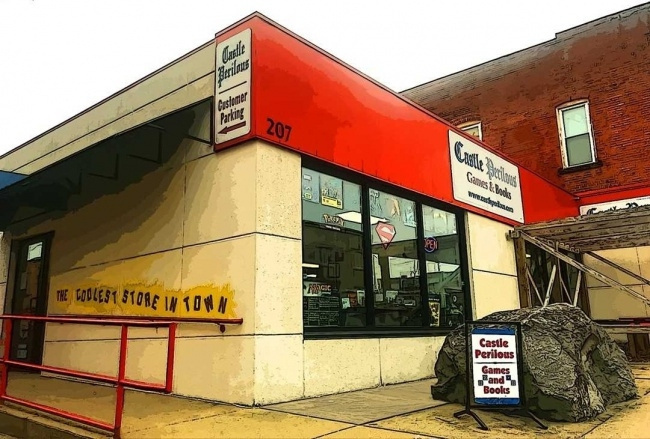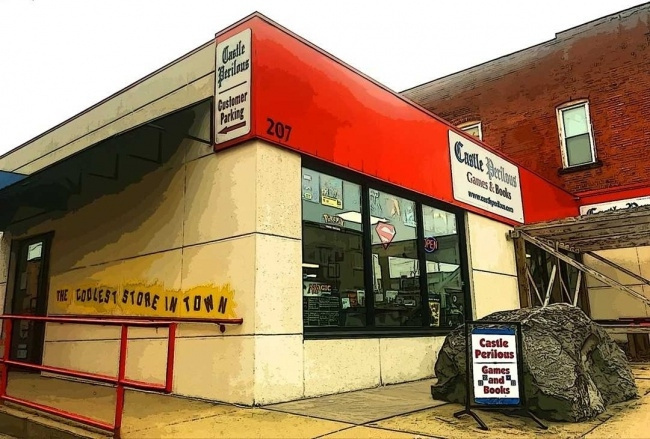Rolling for Initiative is a weekly column by Scott Thorne, PhD, owner of Castle Perilous Games & Books in Carbondale, Illinois and instructor in marketing at Southeast Missouri State University. This week, Thorne discusses how to make money off table space for in-store events.
Using event table space to generate revenue has been a subject of discussion amongst retailers over the past few weeks. Hobby game stores fall into a pretty unique niche where this is concerned. The store is expected to provide play space for customers, but this play space can take up a significant amount of floor space which the store could otherwise devote to products. Restaurants are the closest business type I can think of that approximates the game store table space model. If a customer goes to a restaurant and purchases food, especially if it is plated, the customer expects a table at which to eat the food.
The game store customer, however, usually buys the product and takes it with them then comes back to the store to play in scheduled events, or to use the store table space to play using the game they’ve purchased. Seldom does a customer buy a game and immediately open it and want to play it in the store. They take it home, read the rules and prepare components, then look for someone to play.
TCGs are an exception to this behavior as customers often buy packs and, not wanting to wait, open them in the store. Most of the time, though, customers come in wanting to use store table space to play boardgames, RPGs or miniatures. The problem becomes, how does the store generate revenue from these groups? It has become somewhat of a joke among stores to say they make money off these players by selling them snacks, but that is not a solid revenue stream.
One common argument is that the game store wants to foster a community among players, creating a “third place” for them (see “The Hobby Game Store Business Model”). The idea is that the store should offer table space outside of scheduled events for free, to foster a sense of community among its customers. That does incur an opportunity cost as that space cannot be used for product display. The store expects (hopes) to generate revenue by selling products to the players using the free table space. Unfortunately, hope is not a long-term business strategy so more stores are moving away from the community model, trying to determine methods by which they can generate revenue from those tables.
One method to generate revenue, of course, is a straightforward table fee. Players come in wanting to use a table and the store charges them a per head fee for the use of the table. A number of stores have successfully implemented this model while others have seen significant pushback from their player base.
Another method is to create a “club,” wherein the customer spends so much at the store or buys a store “membership” and among the benefits is use of the store table space. The fee has to be large enough to justify continuing offering table space and the membership has to offer enough benefits to justify the purchase price form the customer’s view.
Yet another method is to create more store-sponsored events and make them desirable enough that customers see value in paying an entry fee to participate. This method means the store will have to devote additional resources to put on events for which customers are willing to pay.
Figuring out how to make money off table space is a problem that I foresee bedeviling stores for quite some time to come.
Comments? Should stores monetize tables? If so, how? Send your comments to castleperilousgames@gmail.com.
Source: ICV2





